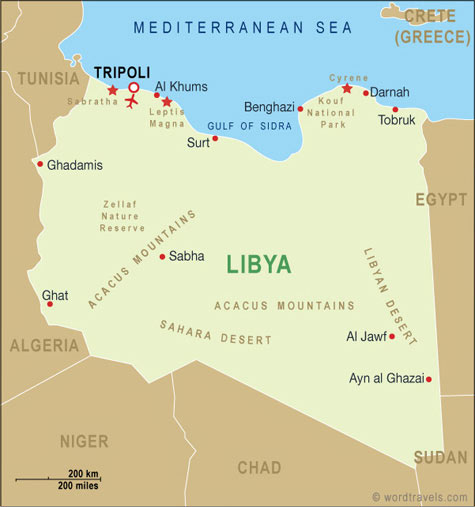The most recent maritime embargo operation that the UNSC authorized is part of a
chapter in the tumultuous developments in Northern Africa, where the people of
Egypt, Tunisia and Libya rose against their leaders, a development commonly
known as the Arab Spring. In the uprising against the Libyan leader Qaddafi, the
UNSC decided in February 2011 to impose economic sanctions against Qaddafi by
adopting SC Res. 1971. An arms embargo, an asset freeze and a travel ban were
imposed by the UNSC to force Qaddafi to stop using violence against the Libyan
population. After Qaddafi used fighter jets to stop the uprising, the international
community’s call for a no fly zone (NFZ) became louder. A few weeks later, on 17
March 2011, the UNSC adopted SC Res. 1973 (2011), which authorized the use of
force to protect the civilian population and also authorized the enforcement of the
imposed sanctions at sea. SC Res. 1973 formed the basis for two military operations:
Operation Odyssey Dawn (OOD) and the NATO-led force Unified Protector
(OUP). Part of the latter operation consisted of a maritime arms embargo operation
off the coast of Libya. NATO’s factsheet mentions on the embargo operation’s
modus operandi: If weapons or mercenaries are found, the vessel and its crew will be escorted to a secure
port where international and national authorities will take charge. Suspected aircraft can be
intercepted and escorted to an airport designated by NATO.
The NATO operation ended eight months later, shortly after the death of Qaddafi
on 20 October 2011, after the Council stopped the authorization to use force with
regard to the situation in Libya in SC Res. 2016 (2011). NATO published that 2.862
vessels had been diverted and 293 vessels had been boarded. Eleven ships were
denied entry into Libyan ports, as they posed a risk to the civilian population.
The end of NATO’s operations in 2011, however, did not prove to be the start of
a calm process of rebuilding the State. In March 2014, about three years after the
conflict and with Libya going through an internal struggle with local militias
fighting against the Libyan government and holding oil ports while attempting to
sell the oil at sea, the UNSC adopted another resolution, SC Res. 2146 (2014), that
authorized inspecting vessels on the high seas, when designated by the Sanctions
Committee. The UN resolution was adopted a few days after US Navy Seals
operating from USS Roosevelt had stopped and boarded the Morning Glory in
international waters in the vicinity of Cyprus. The vessel was said to be stateless
and tried to sell crude oil with a tanker that was stolen earlier. The vessel was
escorted back to the Libyan port of Es Sidra.

